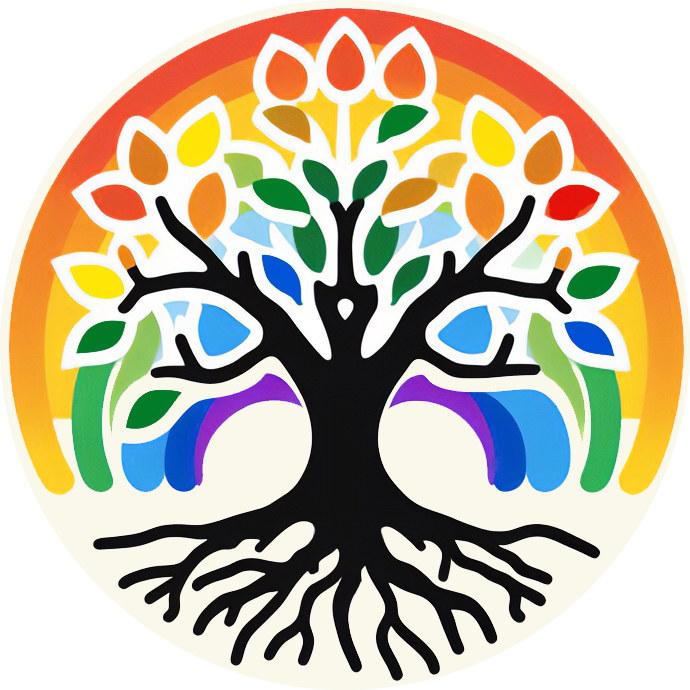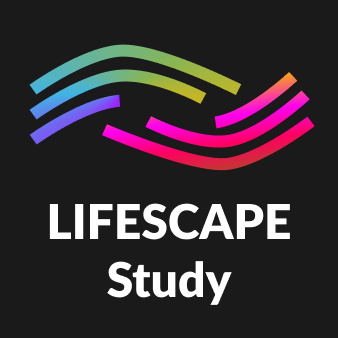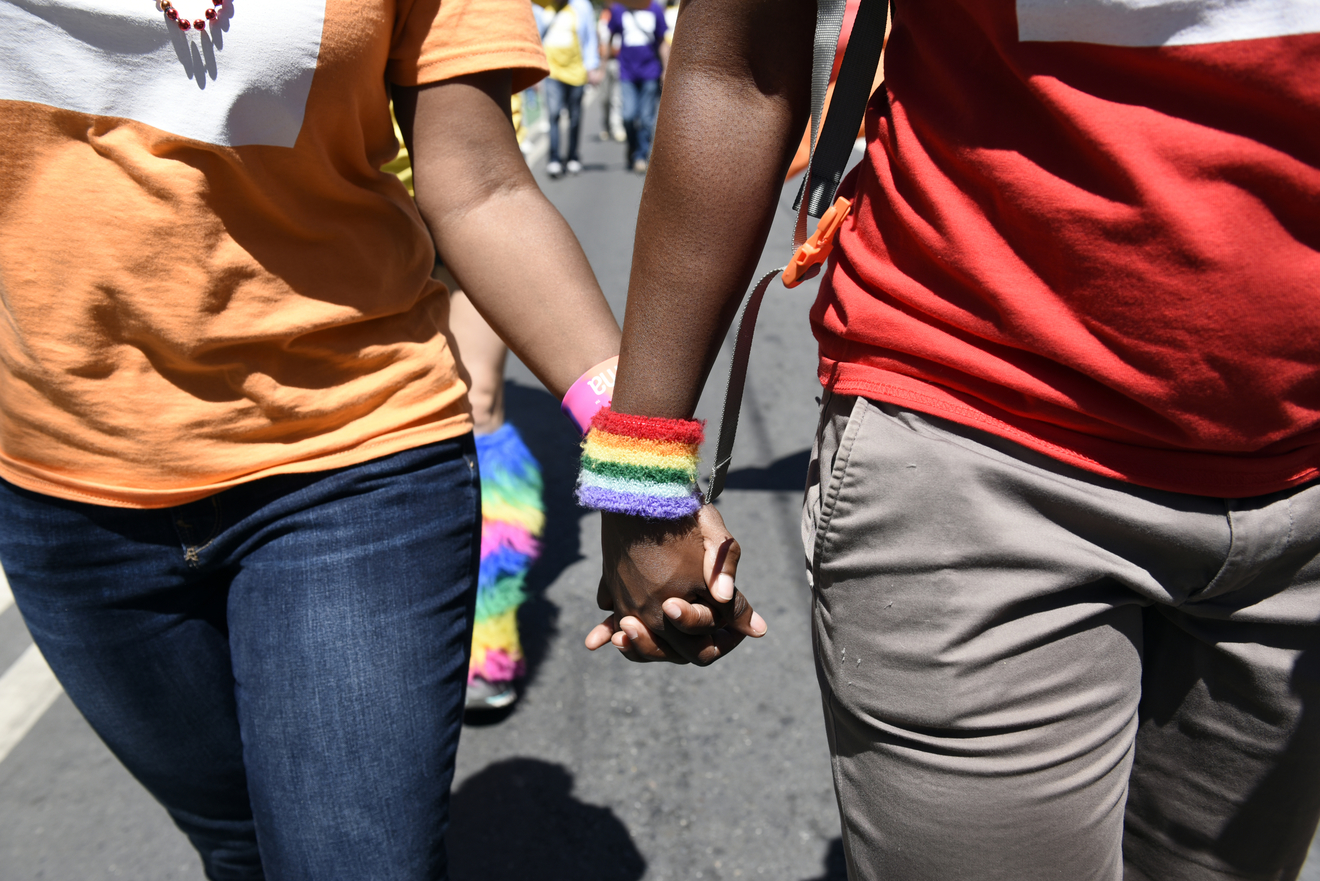S urvey of LGBTQIA+ Older Adults in California: From Challenges to Resilience
urvey of LGBTQIA+ Older Adults in California: From Challenges to Resilience
The California Department of Aging (CDA) is supporting research partners and a statewide coalition of LGBTQIA+ community-based organizations to design and launch California’s first statewide survey documenting the needs, hopes, and priorities of mid-life and older LGBTQIA+ residents across the state.
This survey of mid-life and older LGBTQIA+ residents will paint an up-to-date and comprehensive statewide portrait. To offer insights into the experiences of marginalized and underserved LGBTQIA+ communities, the survey team will oversample Black, Indigenous, People of Color (BIPOC), Hispanic/Latinx, and Asian Pacific Islander (API) communities, as well as rural and frontier communities. The survey data will form a first-ever baseline data set, available to other researchers in an open-source format to encourage additional research and policy attention to the needs of mid-life and older LGBTQIA+ Californians.
A Comparative Effectiveness Study of PTSD Treatments Among Sexual and Gender Minority Populations
Funding: Patient-Centered Outcomes Research Institute (PCORI)
 This project will compare two PTSD treatments that are known to work but haven't been tested in LGBTQIA+ people: Cognitive Processing Therapy (CPT) and STAIR Narrative Therapy (SNT) to find out which ones work the best for LGBTQIA+ people in real-world settings. Right now clinicians and patients don't have the information they need to know which treatments are likely to help them the most. The project will reach patients across the state of CA, including rural settings in CA where it can be difficult to access both PTSD treatment and LGBTQIA+ affirming care.
This project will compare two PTSD treatments that are known to work but haven't been tested in LGBTQIA+ people: Cognitive Processing Therapy (CPT) and STAIR Narrative Therapy (SNT) to find out which ones work the best for LGBTQIA+ people in real-world settings. Right now clinicians and patients don't have the information they need to know which treatments are likely to help them the most. The project will reach patients across the state of CA, including rural settings in CA where it can be difficult to access both PTSD treatment and LGBTQIA+ affirming care.
The PRIDE Study ENROLL TODAY!
Mitchell Lunn & Juno Obedin-Maliver (Co-Directors), & Annesa Flentje (Associate Director and UCSF Site Director)
With over 29,000 participants currently enrolled, The PRIDE Study is a national, online, prospective, longitudinal cohort study that asks: How does being a sexual or gender minority influence physical, mental, and social health? Dr. Flentje is Associate Director of The PRIDE Study, leading the mental and social health portions of The PRIDE Study. Our lab also works on studies nested within The PRIDE Study; current topics of study include substance use and employment discrimination.
Select publications:
Grindlay K, et. al. (2024). Interest in over-the-counter progestin-only pills among transgender, nonbinary, and gender-expansive individuals in the United States. doi: link
Tran NK, et. al. (2024). Inequities in Conversion Practice Exposure at the Intersection of Ethnoracial and Gender Identities. doi: link
Artime, T. M., et. al. (2024). Mental health treatment experiences among sexual and gender minority individuals: Trauma exposure, barriers, microaggressions, and treatment satisfaction. doi: link
Flentje, A., et. al. (2024). Substance use over time among sexual and gender minority people: Differences at the intersection of sex and gender. doi: link
Full list of publications can be found: here
 Within The PRIDE Study:
Within The PRIDE Study:
The Biological Underpinnings of Stress Among SGM People
Stress can change our behavior and the way our body works. Our goal is to learn more about the biological impact of minority stress and substance use, mental health, and changes in DNA methylation over time among LGBTQ+ people across the country.
Publications:
Flentje, A., et. al. (2024). Substance Use Over Time Among Sexual and Gender Minority People: Differences at the Intersection of Sex and Gender. doi: link
Cicero, E. C., et. al. (2023). Acceptability of Biospecimen Collection Among Sexual and/or Gender Minority Adults in the United States. doi: link
Flentje, A. (2023). Challenges and pitfalls in research understanding the immunological impacts of minority stress among sexual and gender minority populations. doi: link
Bosley, H. G., et. al. (2023). A Pragmatic, Person-Centered View of Cannabis in the United States: Pursuing Care That Transcends Beliefs. doi: link
Gene expression outcomes in interventions for substance-using, HIV+ minority men
Funding: National Institute on Drug Abuse & Center for AIDS Research, UCSF Gladstone Institute
 How does sexual minority stress get "under the skin"? This study examines the direct and indirect pathways (i.e., through stimulant use) whereby sexual minority stress (comprised of internalized stigma, concealment, experiences and expectations of discrimination, violence, or mistreatment) may be associated with gene expression and DNA methylation related to functional inflammatory processes among sexual minority men living with HIV who use substances.
How does sexual minority stress get "under the skin"? This study examines the direct and indirect pathways (i.e., through stimulant use) whereby sexual minority stress (comprised of internalized stigma, concealment, experiences and expectations of discrimination, violence, or mistreatment) may be associated with gene expression and DNA methylation related to functional inflammatory processes among sexual minority men living with HIV who use substances.
Within The PRIDE Study: Physical, Mental, & Social Impacts of the Novel Coronavirus on SGM People
The novel coronavirus (officially called SARS-CoV-2), which causes COVID-19 disease, has spread across the world and is now classified as a pandemic. This study will examine how the novel coronavirus has impacted LGBTQ+ communities including physical, mental, and social health impacts. It will also identify the emergence of symptoms of the novel coronavirus among LGBTQ+ people and will assess the experiences of health care interactions for those with respiratory illnesses.
The PRIDE Study Ancillary Study: Trauma and Victimization Among Sexual and Gender Minority People
LGBTQ people often face discrimination and violence in their communities. This study will identify which LGBTQ communities are most at risk for discrimination and violence and how community policies such as non-discrimination laws are related to discrimination and violence.
AWARENESS: A CBT Intervention for Minority Stress
1. Sexual Minorities
2. LGBTQ+ People
Funding: National Institute on Drug Abuse & Lesbian Health Fund
 AWARENESS is a new 9-session, 1-on-1 cognitive-behavioral intervention targeting sexual minority stress. We piloted and tested the intervention with sexual minority men living with HIV. Currently, we are piloting and testing the interventon with sexual minority women and LGBTQ+ people.
AWARENESS is a new 9-session, 1-on-1 cognitive-behavioral intervention targeting sexual minority stress. We piloted and tested the intervention with sexual minority men living with HIV. Currently, we are piloting and testing the interventon with sexual minority women and LGBTQ+ people.
Publications:
Flentje, A., et. al. (2022). AWARENESS: A cognitive behavioral intervention to reduce intersectional minority stress among sexual minority men living with HIV who use substances. doi: link
Flentje A. (2020). AWARENESS: Development of a cognitive-behavioral intervention to address intersectional minority stress for sexual minority men living with HIV who use substances. doi: link